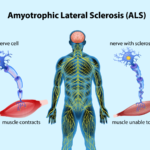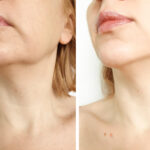Among older adults, dysphagia limits patients’ ability to communicate and eat, leading to health issues.
Older adults can implement better living interventions by understanding how to manage this illness. This article explores how dysphagia patients benefit from professional dietary support.
Making Nutritional Assessment
To begin with, dietitians devise customized nutrition and swallowing care plans for dysphagia patients.To make liquids easier to swallow, doctors may advise patients to use SimplyThick nectar.. Experts evaluate the nutritional status of older adults to identify any deficiencies..
When conducting nutritional assessments, dietitians and speech-language pathologists assess the individual’s swallowing ability.Their meals are also customized to match patients’ cultural food preferences and habits.
Modifying Dietary Plans
With advanced dysphagia, swallowing regular food increases the risk of aspiration pneumonia, poor vocal quality, or even hospitalization.Through modified diet plans, dietitians help patients eat healthy and enjoy their food and drinks while preventing these negative outcomes.
Some common recommendations during this process include using specialized thickeners, such as to improve safety while swallowing. Thick liquids move smoothly down the throat without entering the patient’s esophagus and lungs or blocking their airway. This process also gives the brain more time to initiate the process of safe swallowing.
Liquids can also be thickened without changing their taste.Dysphagia patients can still enjoy their favorite drinks while still remaining safe.
Professional dietitians indicate that any drink, including water and beverages, can be thickened. The caregivers can also thicken them to different levels, such as mildly thick to resemble eggnog, moderately thick to resemble liquid honey, and extremely thick to look like pudding.
Dietitians also advise dysphagia patients to make texture adjustments, such as mincing or softening their foods.Pieces of food should be soft and moist and no longer than half a centimeter in diameter..Soft bread, buttered toast, and oatmeal are safe to consume.
Many experts advise older adults to avoid eating chewy meat, raw vegetables, or hard nuts entirely in some situations.Due to their limited size, these individuals are able to lose weight by consuming high-calorie foods.
Facilitating Collaborative Care
A dietitian and a speech-language pathologist can collaborate to offer swallowing therapy to patients with dysphagia.
Diabetic and dementia patients tend to have dysphagia more often..A dietitian or physician can diagnose and treat dysphagia.
Age also causes changes in muscle reflexes, affecting these individuals’ capacity to swallow safely. Understanding the specific cause of the illness enables dietitians and physicians to recommend safe interventions. Dietitians also educate dysphagia patients’ friends, family, and caregivers on meal preparation and feeding techniques.
That said, dysphagia patients can benefit significantly from professional dietary support. The nutritional assessment, dietary recommendations, and collaborative care with other experts ensure safety and proper nutrition. Healthy meals and appropriate routine improves their quality of life.










